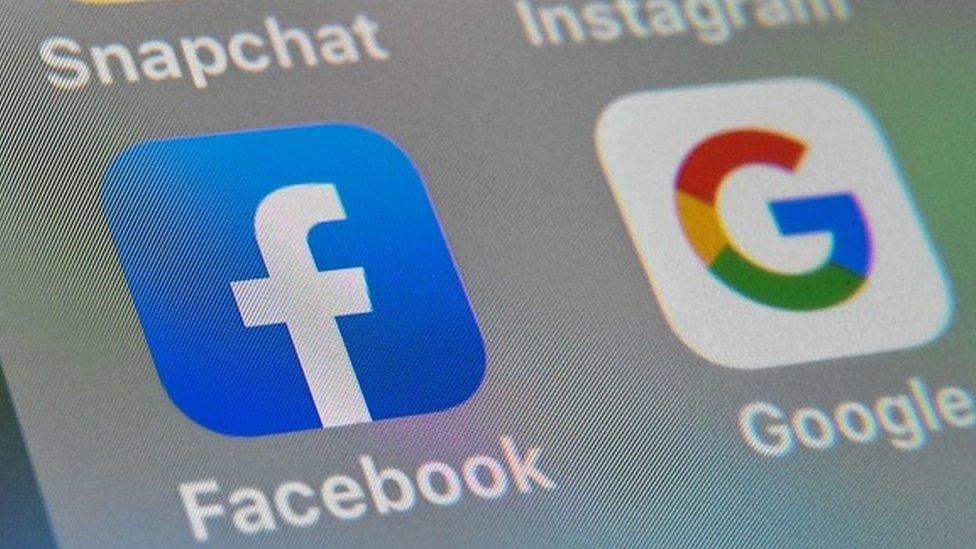Facebook Australia row: A dose of realism on tech regulation
- Published
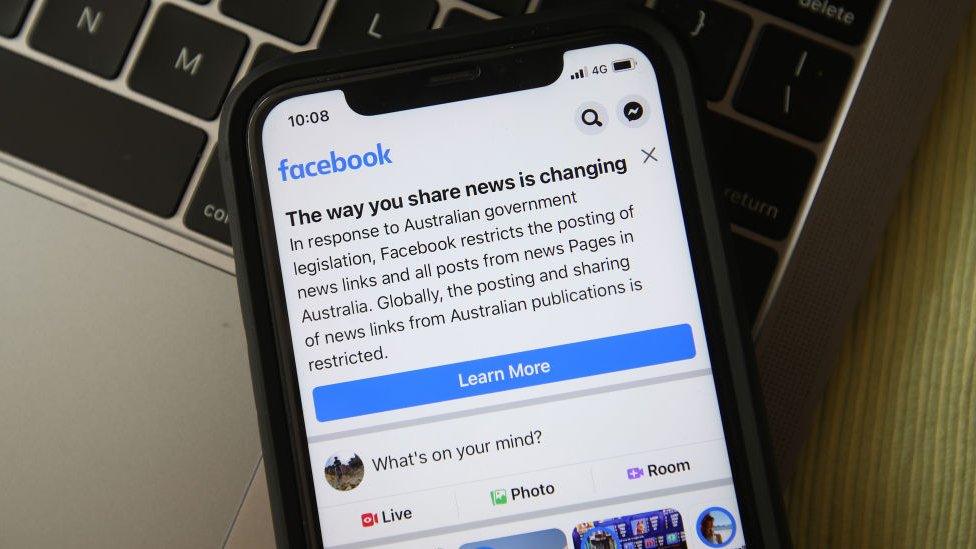
Facebook has blocked all news content to Australians
The enormous beef between Australia's government and Facebook has persuaded a lot of people that we are entering a new era of technology regulation.
In policy and news conferences from Palo Alto to Perth, mostly conducted on Zoom of course, heavy chat about regulation and chin-stroking reliably go together. But as is often the way with complex areas of policy, the word "regulation" has now been so used and abused as to have lost all precision in meaning.
A dose of accuracy, and realism, is overdue.
There are countless types of regulation, whether social or economic, most of them yet to be invented. Different countries have radically different approaches to regulation. The types of company being regulated vary hugely. And regulation, whatever form it takes, is likely to have consequences that are both slow and unforeseeable.
To Australia first. The consistent negative publicity and coverage of Facebook in recent years has coloured the debate to such an extent that Facebook's argument has been somewhat lost in the coverage that I've seen. It's important to re-assert this, not to defend Facebook, but because there is a principle at stake that goes to the heart of what the web is: which is why, by the way, Tim Berners-Lee, who invented it, has defended the company's position.
Australia's initial view was that companies such as Facebook should pay for links. This is a very big deal. The free, open web that we have today is based on the principle that you don't have to pay for links. Start paying for links, and you move to a very different web. This is what Berners-Lee said to Australian legislators.
Moreover, it's not just any links, but links pertaining to a particular category of web material: edited information - that is, news. But what counts as news, and why privilege this one category of material?
On the first question, does tabloid journalism count as news? What about a community blogger who posts magistrates' updates? Ok, how about a magazine that focuses on fishing - but does a news round-up in its opening pages? Should they be paid by Facebook?
On the second question, the short, shallow answer is: Rupert Murdoch. He arguably wields more influence in the land of his birth than he does in the US or Britain. A longer, better answer may come via metaphor.
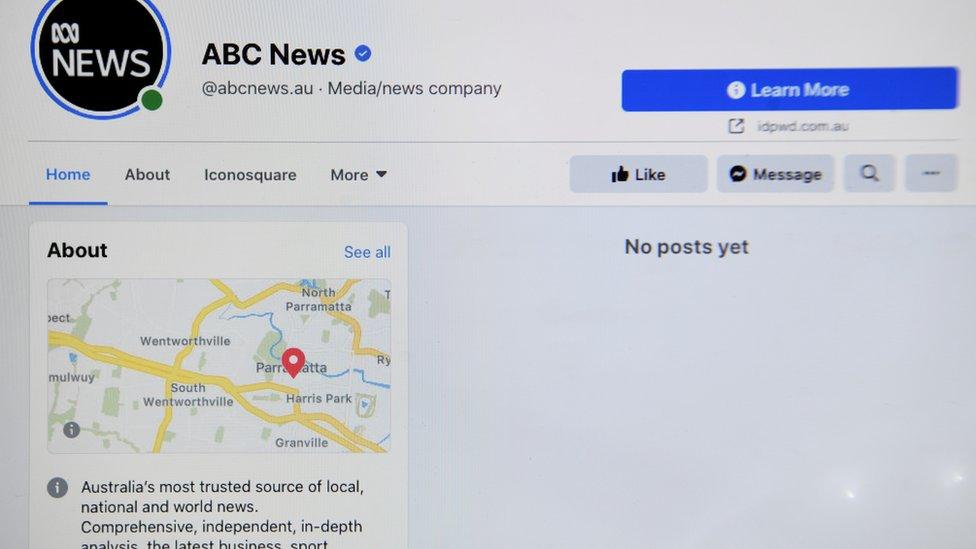
The ABC News Facebook page was affected by Facebook's action
Think of a car maker - say, Volvo. Cars are about getting from A to B, but to make the journey more pleasant, they also have radios. Radio stations choose to go out on frequencies transmitted through car radios. So Magic FM chooses to be in car radios, because it derives value from it: building an audience that they can sell advertising against.
Sure, Volvo derives some benefit from Magic FM; but if Magic FM didn't play in a Volvo, you'd probably still buy it. Nobody ever said, "Sure, I'll buy this Volvo - but only if you guarantee I can get Magic FM".
There is a limit to this analogy, which we'll get to; but the Australian law is a bit like asking Volvo to pay Magic FM each time that radio network plays out in a Volvo car. We don't ask car makers to pay radio networks. Why ask tech platforms to pay for news - when news is only around 4% of all the content on Facebook (most of which is groups arranging to walk their dogs, or pictures of babies, etc)? After all, publishers choose to be on Facebook, because like Magic FM in cars, they derive value from it.
The answer - and this is where the analogy, while instructive, falls - is that our public information system, the media, is too precious and too damaged for the normal rules to apply.
And Facebook has definitely contributed to that damage, by spreading lies and misinformation; and arguably contributed to it by vacuuming up so much digital advertising. Moreover, Volvo is one of many car makers who have a comparable share of the market; whereas when it comes to advertising, most of which is online these days, Facebook and Google have around 60% globally.
So will other countries follow?
Even then, those who make the case for the original Australian proposals have to justify privileging news, define what news is, and accept that they want the current freedom and openness of the web to be compromised.
One person ostensibly willing to do all those things is Dr Andrea Coscelli, the Italian economist who is head of the UK's Competition and Markets Authority. In an interview with me this week, Coscelli made clear his sympathy for the Australian proposals, which he called "sensible". On the point that paying for links changes the fundamental nature of the web, he said he was relaxed about that; the web has changed before, and will change again.
The Competition and Markets Authority would like regulatory changes to deal with the 'imbalance of power'
I was very struck by the clarity of his answers when asked about Google and Facebook specifically. Do they constitute a "duopoly", I asked? "Yes." Is Google's 90% share of the search advertising market too big, I asked? "Yes." And what about Facebook's more than 50% share of the display advertising market in the UK. Too big? "Yes".
It is unusual to hear such definitive answers from a regulator. While Dr Coscelli was also full of praise for the tech giants, which he made clear are brilliant companies, his forthright take makes clear that Australia has set a noisy precedent. The onus is now on regulators and legislators everywhere to answer the question: well, Australia have done it, so why haven't we?
And yet it might not make much of a difference, at least for a while. The sheer dominance of Facebook and Google was laid bare by the precipitous drop in traffic to publishers in Australia, when Facebook briefly pulled the plug last week (see graph below). It fell off a cliff,, external showing that many businesses have built their futures on the fickle friendship of Mark Zuckerberg - something I have been warning media companies against for years.
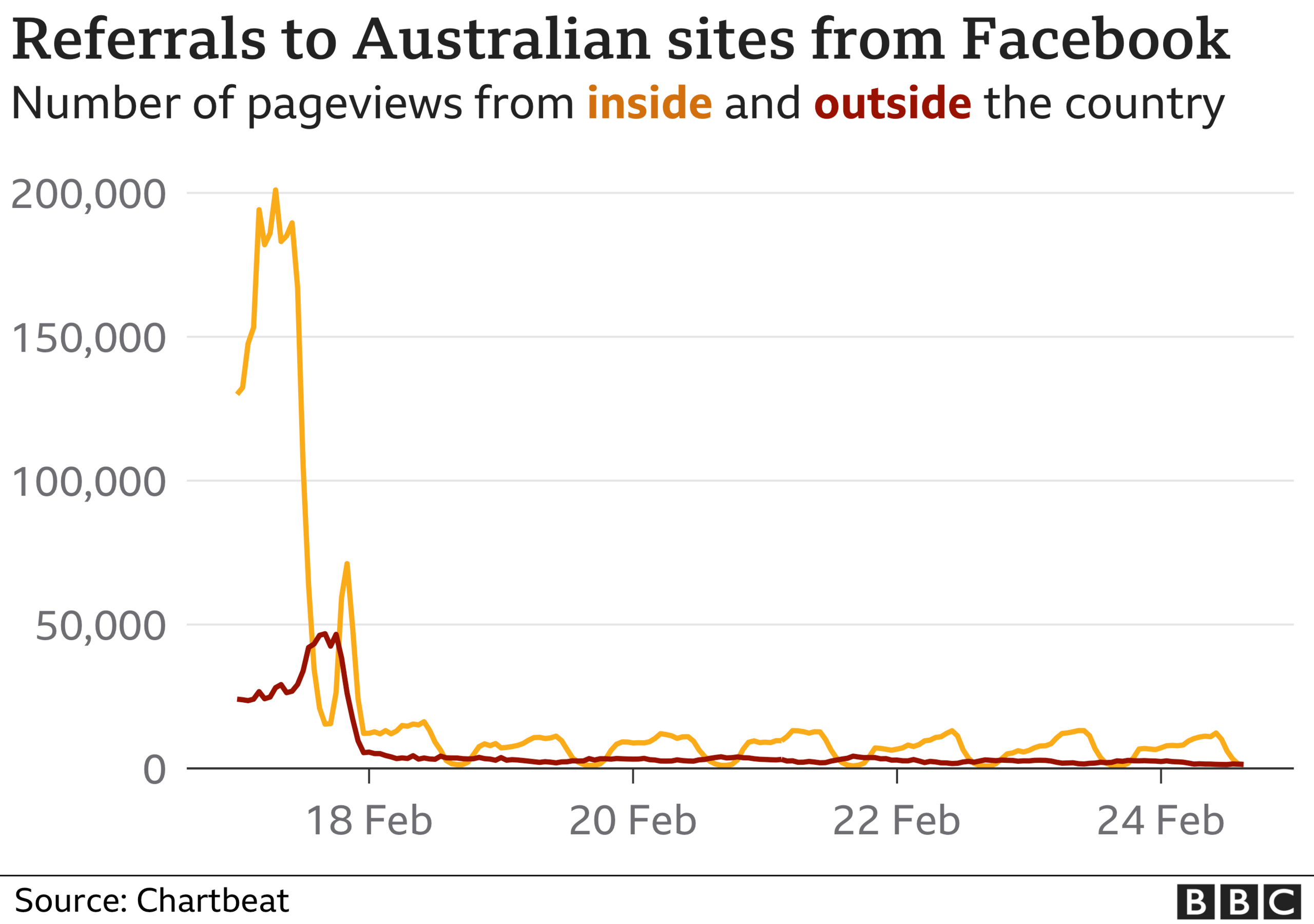
Facebook's blocking of Australian publications had a drastic effect on traffic to the online sites

I also detect a lot of wishful thinking among those who believe the Australian proposals will seriously alter the balance of power in our public domain. Obviously that's not a reason to hold back reforms; indeed it may be a reason to accelerate them. But it will be a long time before the dominance of Google and Facebook is chipped away, let alone defeated.
Why? Because of the nature of data.
And then what?
For a while now I have tried to debunk the platitude that data is the new oil, alas with no success. I won't repeat the arguments here, except to say it is still in common parlance to argue that just as Teddy Roosevelt and his allies broke up an oil-igarchy a century ago, so a new generation of trust-busters could do the same to the world's first hoodie-wearing oligarchy, which we have today.
But the oil barons ran national companies which were confronted by national politicians, whereas the data kings are global beasts. And aside from the myriad, essential ways data and oil differ, Dr Coscelli was clear in our interview that the nature of data is such that those who have it gain an exponential advantage over others. With a bit of data you can often get more, basically; whereas oil is finite. And so, over the past 15 years, Google and Facebook have developed astonishingly detailed profiles on half of humanity. They know a lot about you, me, our families, and the Smiths at No 72.
A lot of people pay a lot of money for these profiles. This is sometimes called surveillance capitalism.
Those 15 years have given Facebook and Google a monumental incumbency advantage. It will take a very, very long time for any new entrant to get even close to competing. As things stand, one of the closest competitors to Google is Bing, Microsoft's search tool. Microsoft is richer than both Google and Facebook. The idea that, with more regulation, some plucky upstart from a garage in Grimsby could knock the duopoly off their perch is deluded.
Again, this may strengthen the case for more regulation, not weaken it. It's vital, however, to be realistic and hard-headed: not just about what regulation means in different places, but what it might actually achieve, and by when.

If you're interested in issues such as these, you can follow me on Twitter, external or Instagram, external; and subscribe to The Media Show podcast from BBC Radio 4.
Related topics
- Published25 February 2021

- Published18 February 2021
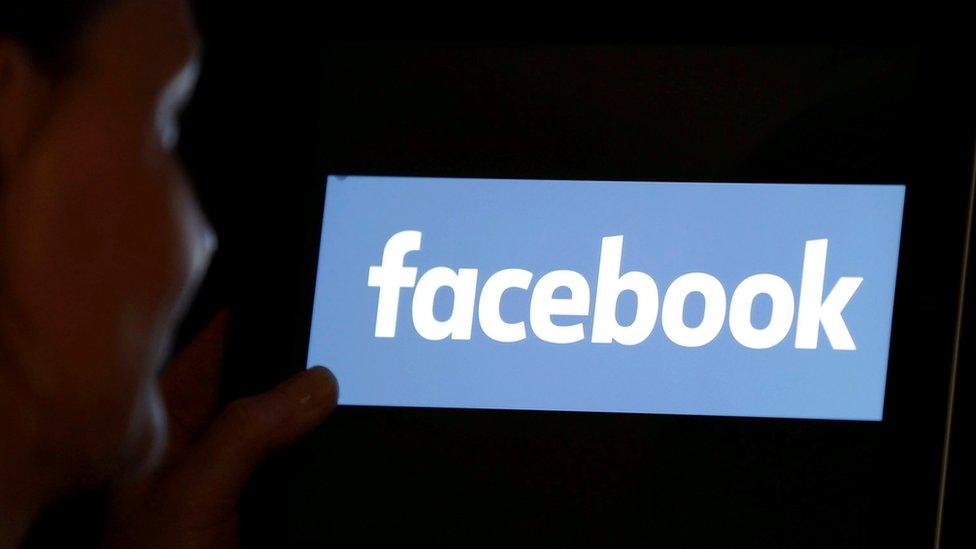
- Published18 February 2021
